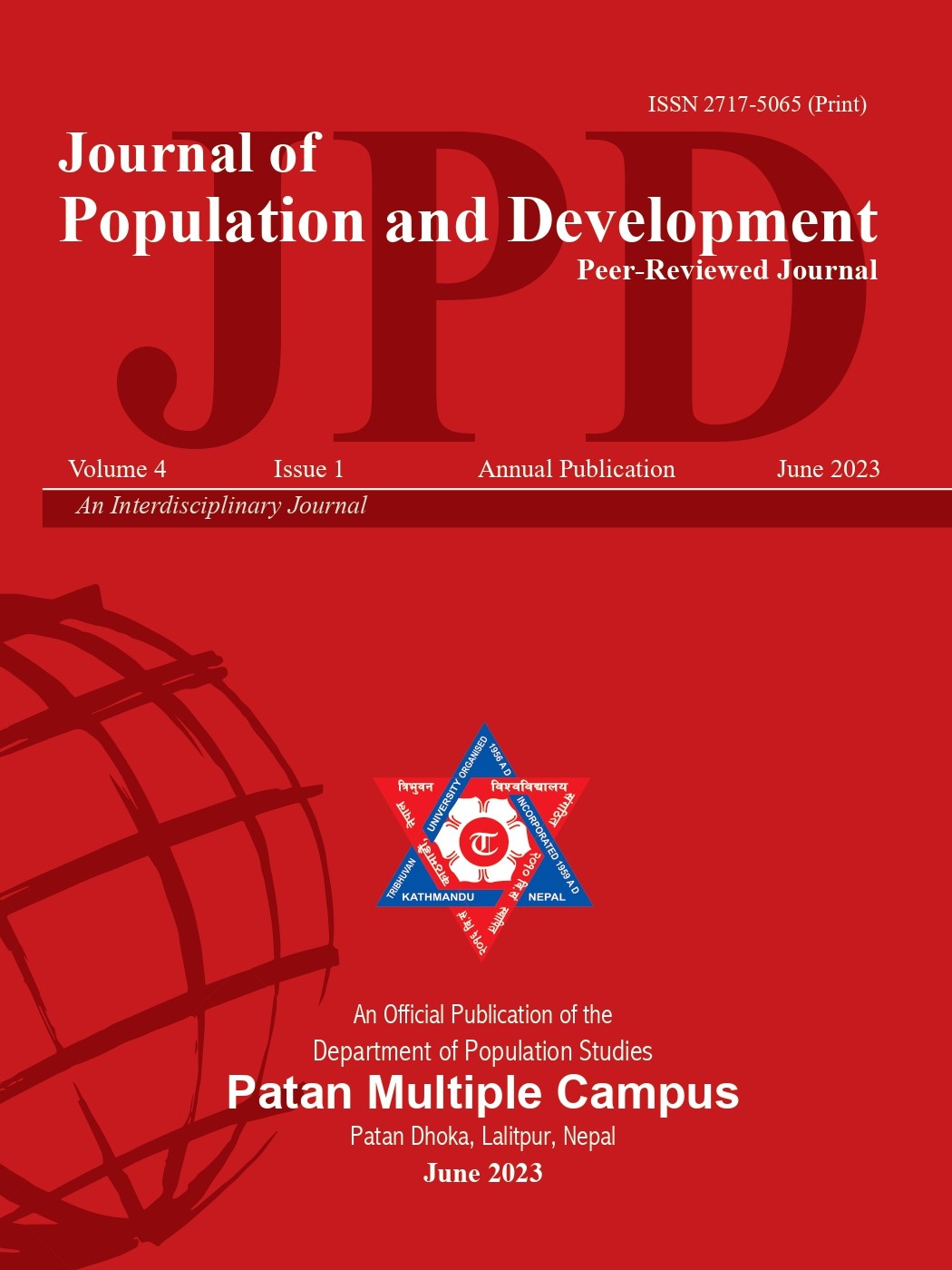Towards a Digital Revolution: Investigating the Impact of GDP, Tax Collection, and Interest Rates on Cashless Economy in India
DOI:
https://doi.org/10.3126/jpd.v4i1.64243Keywords:
cashless economy, digital revolution, GDP, tax collection, interest rates, OLS multiple regression analysis, IndiaAbstract
The rapid advancement of digital technologies have propelled economies worldwide towards a transformative shift to cashless transactions. In the context of India's ambitious journey towards a digital revolution, this research aims to investigate the impact of Gross Domestic Product (GDP), tax collection, and interest rates on the adoption and usage of a cashless economy in India. The objectives of the study were to explore the relationships between GDP and the cashless economy, tax collection and the cashless economy, and interest rates and the cashless economy. Three hypotheses were formulated to test these relationships, positing that as GDP, tax collection, and interest rates increase, the adoption and usage of cashless payment methods in India. Using OLS multiple regression analysis through STATA software, data from the years 2001 to 2020 were meticulously analyzed. The research findings revealed a significant positive correlation between GDP and the cashless economy, indicating that as India's economy grows, there is an increased inclination towards digital payment methods. Similarly, effective tax collection initiatives were found to play a pivotal role in promoting formal financial transactions and driving the adoption of cashless payments in the country. However, contrary to the hypothesis, the study results showed that the impact of interest rates on cashless payment adoption was not as prominent as anticipated. This research contributes valuable insights into the dynamics of India's digital revolution, emphasizing the role of key macroeconomic factors in shaping the cashless ecosystem. The findings offer strategic implications for policymakers, financial institutions, and businesses in devising evidence-based strategies to accelerate India's transition towards a robust and inclusive cashless economy.
Downloads
Downloads
Published
How to Cite
Issue
Section
License
© Department of Population Studies, Patan Multiple Campus

